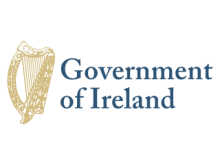Resource information
These Regulations designate a coastal area as a Special Protection Area in accordance with Article 4 of Directive 2009/147/EC of the European Parliament and of the Council on the Conservation of Wild Birds. The purpose is to ensure protection from disturbance, capture and damage to nests and eggs under Article 5 of the Directive for all species of birds, not just the birds listed on Schedule 3 (with the exception of those birds covered under Articles 7 for hunting and 9, where derogations are listed). Schedule 4 lists activities that require the consent of the Minister and may cause disturbance or damage to birds protected under Schedule 3. They include: burning, topping, clearing scrub or rough vegetation or reseeding (consent is not required for these activities on established reseeded grassland or cultivated land provided it is greater than 20 meters from a river, stream or flood plain or greater than 50 meters from a wetland, lake, turlough or pond); drainage works including digging, deepening, widening or blocking a drain, watercourse or waterbody; reclamation, including infilling; introduction, or re-introduction, of plants or animals not found in the area. (consent is not required for the planting of crops on established reseeded grassland or cultivated land); and planting of trees or multi-annual bioenergy crops. Operations or activities other than those listed at Schedule 4 to these Regulations, such as effluent discharge, construction work, aquaculture, fishing or forestry require a licence or permission from the appropriate consent authority.
Implements: Directive 2009/147/EC of the European Parliament and of the Council on the conservation of wild birds. (2009-11-30)



